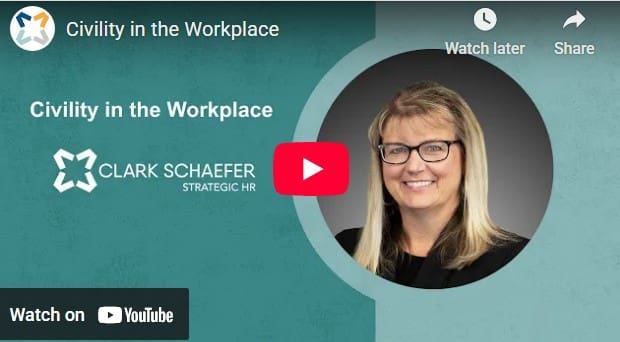How to Handle Political Talk During the Work Day
Last Updated on May 28, 2020 / Employee Relations
HR Question:
Since it’s an election year (not to mention one during an unprecedented pandemic), the conversations between my employees are becoming increasingly political. How do I handle this political talk either in the office or with remote workers during office hours?
HR Answer:
It’s natural that conversations amongst team members can quickly turn political – with it being a presidential election year, paired with heightened communication from our local & state leaders due to the pandemic, political topics are at the forefront of many people’s minds! Whether your employees are in your physical office space or communicating during office hours while working remotely, it is likely that politics and the election will become a topic of conversation as employees interact. As these conversations can include polarizing opinions, it is smart for employers to have a strategy for handling political talk at work.
Political discussions in the workplace can have both a positive and negative impact. Political expression in the workplace can contribute to a culture that values diversity of thought and the overall well-being of employees. Friendly political talk can be a team-building skill and a morale-booster, especially when it’s done with compassion and a commitment to respecting differing viewpoints. However, if the political chatter doesn’t come from a place of mutual respect and an interest to learn from different viewpoints, or if it seems to be the only topic of conversation, it can create a negative and unwelcoming atmosphere. If left unaddressed, this could lead to lingering resentment that can affect work relationships and effectiveness. Or worse, some political discussion may lead to hostile comments surrounding gender, race or religious statements that could lead to harassment and discrimination claims.
Should I ban political discussions at work?
It’s probably not realistic to mandate that politics not be discussed at work. Particularly given all that’s going on in our country and the world, it can be hard to avoid the topic – even in a general sense. For example, it’s natural that team members may want to discuss local, state, or federal regulations surrounding social distancing during the COVID-19 pandemic. Imagine having to stifle that conversation every time it arose.
Additionally, banning political discussions may be considered discriminatory to some. According to the National Labor Relations Board (NLRB), an employer may not interfere with political speech where there is a “direct nexus between employment-related concerns and the specific issues that are the subject of the advocacy.” The National Council of Nonprofits warns that not-for-profit organizations should be careful to maintain a non-partisan stance when dealing with the election or risk revocation of their tax-exemption status. However, this Business Journals article points out that “private sector employers generally retain the right to maintain a productive and non-hostile working environment.” With all of this in mind, employers can set expectations for behavior that will help to maintain a positive and respectful work environment.
Rather than trying to police every conversation, it may be more beneficial to set expectations for how to have respectful conversations – no matter what the subject. This SHRM article provides great suggestions on how to share political opinions without damaging work relationships. For example, it can be helpful to approach the conversation with an interest in learning from someone’s point of view rather than trying to change their opinion. Recognizing that everyone may not have the skills to do this effectively, consider providing training on how to discuss sensitive subjects and how to approach disagreement in civil and respectful ways.
We recommend that employers provide clear guidelines for how to discuss politics in the workplace and make the policy clear and easily accessible to the employees. This is a prime area to address in your employee handbook.
Ultimately, employers should stress the point that work comes first always. Everyone is still expected to meet their business objectives and to work together in an environment where employees can express themselves in a professional and respectful manner.
Having an employee handbook with policies and procedures that are easy to read and understand can help alleviate a lot of problems in the workplace. Not only do they set the stage for what is deemed inappropriate, but they can also provide guidelines for what is considered acceptable and expected behavior in your organization. Clark Schaefer Strategic HR (CSSHR) can create, review, or augment your employee handbook. For more information, you can Request a Handbook Quote or visit our Employee Relations page to learn how we can help.













